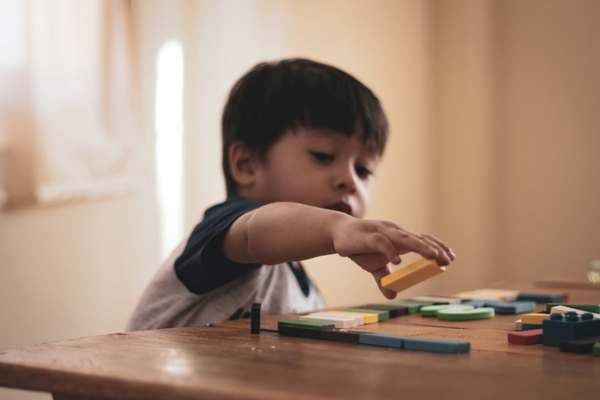When hearing your child recounting sessions, it may seem like you’re spending your hard-earned money for a stranger to just play games or baby-sit your child. Why Play therapy? Where do games and activities fit into the therapeutic process? It’s normal for parents to wonder how anything will be resolved and their child can make any progress on concerns when the therapist is not addressing them head on! Often it can be difficult to trust in the process when there are not any changes seen after a few sessions. There are many reasons why play is a powerful therapeutic tool when incorporated into sessions by a trained therapist.
As experienced St. Louis therapists, we understand that building rapport is the first task and most essential for any client-therapist relationship. Without rapport, which allows safety and trust in the therapeutic relationship, there will not be a successful foundation to therapy. Rapport takes time and is worth not rushing. Many therapists spend 3-4 sessions to ensure rapport is firmly established. Games and activities are a non-threatening way for a therapist and child to interact and get to know more about each other. When children’s interests are taken into consideration, they will engage more readily. Games and activities also provide structure and guidelines to follow. This creates safety in the beginning for children, many of whom may feel unsure of themselves, this new setting, and what to expect.
Play is powerful. Play is a child’s language and allows the therapist to meet their developmental needs. Through play children will learn life-long skills to apply to everyday problem solving.Talk therapy is not going to be as effective for Nealer children who do not have the developmental level necessary to verbally process big emotions. Children act out every-day experiences, including feelings through their play. Play also creates a safe psychological distance from their problems. It is not the child who had the scary thing happen to him, it is the toy soldier who was hurt.
Play is freedom and choice. The structure of a play session is set up to be child-led. The play therapist follows the child’s lead, allowing them to choose what to do. Structure may be provided in terms of knowing the duration of the session and mom/dad are in the next room. Rules are not recited. The play therapist allows the child opportunity to make choices and only set limits as needed. For example, if an object is thrown at the therapist they would calmly and firmly state “I am not for hitting.” This type of session allows children to “mess-up” or act out in a safe space where they can make a different choice. They are allowed the safety and space to self-regulate and have a “do-over.”
Maybe you’re thinking “I’m still not sure about who is a play therapist, and what sets them apart?” Play therapists are highly trained individuals who have received 150 clinical training hours and supervision over a 3-5-year period to become certified through the Association of Play Therapy. With this specialized knowledge and training they are well-suited to apply the therapeutic power of play into sessions and treatment for your child. This training and expertise allow our St. Louis therapists to connect with your child and guide them through the therapeutic process in a safe way that does not overwhelm their developmental capabilities.
Conclusion
Little children love play time and perhaps, that’s the reason why play therapy tends to work best when counselors and/or therapists set out to build a healthy rapport with them. Sometimes, the best way kids express themselves is through play. It is, therefore, best for parents to trust this method. Therapists are knowledgeable about and experienced in using play therapy to create a sense of trust with your children and help them navigate the therapeutic process without overwhelming them.
Contact Professional St. Louis Therapists for Help
We understand that your children are your topmost priority. Our professionals want nothing but the best for them, while making sure that they develop into healthy individuals, physically, mentally, and emotionally. Our experienced therapists employ play therapy to help your little ones express their deepest feelings and emotions, while supporting the development of their abilities. Speak to us today at (314) 370-5531 or click here to understand this process better and learn about its benefits.
Kristen Neal is a Licensed Professional Counselor and Clinical Director at Greenway Therapy . Learn more about her on her BIO page.





